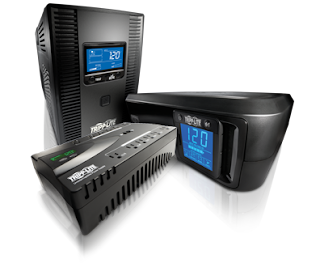Unveiling the World of UPS Systems: Types and Benefits
Introduction
In today's fast-paced world, where technology is the cornerstone of everyday life, ensuring uninterrupted power supply has become more critical than ever. Unforeseen power outages can disrupt operations, damage sensitive equipment, and result in data loss. This is where Uninterruptible Power Supply (UPS) systems come to the rescue. In this article, we delve into the various types of UPS systems, their functionalities, and the benefits they offer.
Understanding UPS Systems
UPS systems, as the name suggests, provide uninterrupted power to connected devices during electrical outages. These systems act as a safeguard, preventing disruptions and ensuring the continuity of operations. UPS systems are divided into three main types: standby, line-interactive, and online double-conversion.
Standby UPS
The standby UPS, also known as Offline UPS, is designed for basic protection against power fluctuations and outages. It switches to battery power only when it detects a voltage drop or outage. This type is suitable for home and small office setups with minimal power requirements.
Line-Interactive UPS
The line-interactive UPS offers a step up from the standby UPS. It includes an automatic voltage regulator (AVR) that corrects minor fluctuations without switching to battery power. This type is ideal for medium-sized businesses and workstations with moderate power needs.
Online Double-Conversion UPS
At the pinnacle of UPS technology is the online double-conversion UPS. It provides continuous power protection by converting incoming AC power to DC and then back to AC. This eliminates any fluctuations, surges, or sags in the power supply, making it perfect for data centers, servers, and critical infrastructure.
Benefits of UPS Systems
Implementing a UPS system offers a multitude of benefits, ensuring operational integrity and data security.
1. Uninterrupted Operations
UPS systems prevent downtime during power outages, allowing businesses to continue operations without disruptions. This is particularly crucial for industries like healthcare and finance, where every second counts.
2. Equipment Protection
Sensitive electronics are vulnerable to power fluctuations. UPS systems provide a stable power source, protecting equipment from damage caused by sudden power surges or voltage drops.
3. Data Preservation
Data loss can be catastrophic. UPS systems give you the time needed to save important files and shut down systems properly, reducing the risk of data corruption or loss.
4. Voltage Regulation
Line-interactive and online double-conversion UPS systems regulate voltage, ensuring that devices receive a consistent power supply, even during voltage fluctuations.
5. Surge Suppression
UPS systems often come with built-in surge suppressors, guarding against transient voltage spikes that could harm equipment.
Choosing the Right UPS System
Selecting the appropriate UPS system depends on the specific requirements of your setup. Consider factors such as power load, runtime, and the criticality of the equipment being protected.
Conclusion
In the realm of modern technology, where every moment is precious and data is invaluable, UPS systems stand as sentinels, guarding against the uncertainties of power interruptions. From standby UPS for homes to online double-conversion UPS for data centers, these systems offer a range of solutions tailored to diverse needs. With their ability to ensure uninterrupted operations, protect equipment, and preserve critical data, UPS systems have become indispensable in today's interconnected world.
{start}
FAQs (Frequently Asked Questions)
Q1: Can I use a standby UPS for my office setup?
Yes, standby UPS systems are suitable for small office setups with minimal power requirements. They offer basic protection against power fluctuations and outages.
Q2: What is the key advantage of an online double-conversion UPS?
The primary advantage of an online double-conversion UPS is its ability to provide continuous power protection by converting incoming AC power to DC and then back to AC, eliminating all power fluctuations.
Q3: Are UPS systems only for businesses?
No, UPS systems are beneficial for both residential and commercial settings. They provide power protection to a wide range of devices, from computers to home entertainment systems.
Q4: How do I determine the right UPS capacity for my equipment?
To determine the appropriate UPS capacity, calculate the total power consumption of all connected devices and add some extra capacity for future expansion.
Q5: Can a UPS system protect my equipment from lightning strikes?
While UPS systems offer surge suppression to some extent, dedicated surge protectors are recommended for shielding equipment from high-energy surges like lightning strikes.

